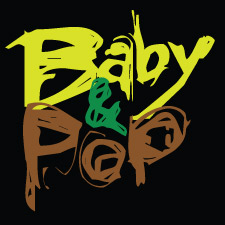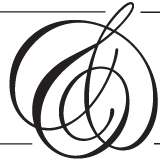
 |
Five |
A period of rest. After we’ve eaten I’ll roll the stone down the slope to the place we’ll make our defences. But for now it seems prudent to lie back, easing my muscles, and write only on the sacred stone of the Inner Circle.
Baby, who knows I’ll be feeling guilty for abandoning him by the Rolling Pin, wants to see how far he can push his luck. He knows, should I snap at him, he only has to remind me of my earlier sins.
So, Pop, his voice rings out, what would have happened if you’d gone to sleep up there?
I don’t know, Baby.
Would you have died?
I really don’t know.
Have you ever seen anyone die, Pop?
All I can think of now is the moment, late on- clearer than the other memories of Before the Cave, though perhaps it’s been embellished by mental retracing- when Pat, who has a medal in Long-Distance Swimming, hurries back up the hillside to the little camp, ridiculous in his Y-fronts, and sits down in front of the fire.
Marie, who hasn’t said a word to me since he left, seems to be resisting the urge to fall upon him and kiss him madly for managing to return to us without dying. They were close to divorce a month ago. Marie was sleeping with a man who drew up in the drive every morning in a Jaguar, unconcerned with who saw him.
Pat shakes his head at her, and looks at me, and says,
They’re all dead. Everyone who sheltered at your place.
The two of them stare at me for several minutes across the little fire Pat and I pulled together with a couple of branches.
The first thing I want to say, long before Marie breaks the silence, is,
That’s absurd. Nobody can die in a flood. Not in the age of Swimming Proficiencies. It’s only water, for God’s sake. When you watched it on the television you always thought that the poor little bastards just never learnt how to doggy-paddle. This is silly.
Are you sure? Marie asks Pat.
I counted the bodies, he says, in a half-whisper, to her, as if my state of shock will surely prevent me from hearing. The front door and part of the living room wall had broken down. They were just floating downstream. Our garden’s underwater, Marie.
But downstream to where? she asks, frantic, and glances at me.
Polly, I think. Dad and Mum, Isaac, Bobby, Violet, Uncle Rich, Danny, Steven, Spike, Theodora, Grandpa. That’s ridiculous. There’s too many of them to be dead at once.
They’re all gone, I think. A bizarre sensation of relief. Marie is still waiting for news of her parents, and her brother in Shrewsbury; Pat has spoken to somebody who thinks he saw a young fair-haired boy, yes, a little like her nephew, floating away clinging to the enormous splinters of a telegraph pole. I have no-one. There’s no need for me to stay here.
I leave Pat and Marie to themselves and walk to the crest of the hill. An old duffer is crouched in a foetal ball between the rocks, watching Joy Avenue, piece by piece, flake away into the water. The peak of St Mary’s has fallen and disappeared. The roofs bob above the surface like drowning children
Incredible, isn’t it? the old duffer says, from between his tear-white hands.
And I reply,
Yes, it is.
Distant corpses, I tell Baby. Dots on the horizon. They weren’t...conceivable.
If you died tomorrow, Pop, says Baby, would you go to Heaven?
I consider it as a serious question, though I’m pretty sure he’s still screwing with me. I must have done many pretty bad things Before The Caves, but they were all to people who are now long dead. I’m not sure how much of a clean slate that gives me.
I tell him,
Since I’ve been down here, Baby, I haven’t hurt anyone. I haven’t slept with my brother’s wife; I haven’t taken more than was rightfully mine. I haven’t killed any animals, for food or for pleasure. I mean, obviously my quotient of good deeds has been limited as well, but that’s a given.
What, Baby says, there weren’t any native bats you drove out of The Caves? No beetles you chained up and whipped so they’d bring you your daily supply of moss without your having to get up?
No-one, Baby. You know as well as I do. There’s nothing living down here except for us.
All of those centuries of shame wiped clean. The descendants of the hateful and the oppressors and the enslavers and the descendants of the hated and the oppressed and the enslaved are all gone. I have no more guilt, because all of the structures were washed away.
Unless I explain it all to Baby. And I shan’t.
But you’ve hurt me, Baby says. I knew he wouldn’t be able to resist it. You left me all alone.
And you’ve hurt me, I tell him. I suppose that makes us equal in the eyes of Heaven.
His devious plastic mind has already wandered on.
Pop, his voice comes suddenly, in a very different tone.
Yes, Baby?
This plan with the stones. You know it isn’t going to work.
Why would you say that?
You can’t stop water. I know that.
I never taught you that.
My mother held me under in a bath full of hot soapy water once, Baby says, out of curiosity. I’d thought I was a solid skin, but it found cracks and gaps where I’d never even imagined there could be any. Water infiltrated through my eyes, through my arm and leg joints, even through my mouth where my mother had tried to find an opening but failed. And I spent hours underwater when the flood came. The water went the same way, exactly, as in the bath. Up into everything. So moss just won’t do it.
That’s just shoddy manufacturing, I tell him.
We should try and find a way out, he insists. Survival is the really important thing now. And we’re not going to survive by piling up some stones- probably crippling ourselves in the process- and stuffing moss between them.
Shut up, Baby.
He goes quiet.
You know the thing with the cat and the box, he begins again.
Schrodinger’s Cat, Baby? Now you’re playing tricks on me. There’s no way you could possibly know that.
My mother had a tutor, Baby says. Not that it did her any good. Her genes were shot from the start. There wasn’t any hope for her.
Baby likes to remind me how his mother died, stuffing her pockets full of the coins that had burst from a swollen taxi meter. Dipping her squat body down into the floodwater to collect another handful of change. And then a second surge came, and while her parents were still shouting for her, she went.
He likes to tell this story; not, I think, out of malice towards her, but because it’s one of the few stories he has from her short, sheltered life where anything actually happened. And because of the association. Ten minutes later, I dipped in much the same movement to lift the drowning plastic Baby from the water. His mother may have been just a few metres away.
Imagine the box thing, says Baby, from the cat’s perspective. To him, the world’s an un-world. It may or may not still exist.
Ah, I reply, and begin to retrace, The Great Circle is the place of safety. At the very centre of the Great Circle lies the Inner Circle, where the stone is smoothest from my body’s pressure.
Baby, you’re right. I don’t know if there are still people alive beyond the Caves, because it’s difficult to be certain how long we’ve been down here. And the only way to be certain is to break out. We should leave at once. I know the way.
Really? asks my little unironical Baby, surprised.
***
I leave him there and roll the stone down across the Great Circle. It comes easily, and I think, was I really so terrified of moving it before?
There’s something wonderful in being alone. An empty place, and your endurance there.
But I’m not alone, I think. Not really. No matter how far out I go, Baby is listening for me.
You follow the Tunnel Beyond Shitter’s Corner down for one-hundred-and-twelve steps, occasionally more or less, until you come to an impurity in the stone. A vein. You turn away from that vein and the tunnel tightens. I halt the stone here, feeling around it both proudly and critically. The first line of my defences.
I once stood up, struck my head, and lost consciousness here. At one point you have to watch for the sharp rock that can catch dangling genitals and careless limbs. Then the steep fall, the two footfalls, and you can slide down to the Pool.
I know the water will have risen, and when my feet break the chilly surface, at the very foot of the Moss Wall, I remain quite calm. It could have been higher.
This first time will not be easy, I tell myself. But it has to be done. I try and imagine fish, flashes of silver in the greater darkness of the sea, with any kind of kinship. It just makes me shudder.
I wade in to my knees, and then, as my feet begin to slip on the stone, I step back a little way. On the second attempt I make it in to my groin, which stings.
The third time I go in all the way to my chest, crouching so that I don’t have to walk further down the submerged slope. It feels entirely new beneath the water. Untrustworthy.
I manage to eat three handfuls of moss before I realise I’m delaying the inevitable moment. I crouch down to my knees, and then bend my back. The tip of my beard sizzles at the touch of chilly water. It must be grey now, I think. Then I push myself out into the water and under.
Shrieking, as if from deep below me. All of my limbs flailing at the void, unable to find any surface. Unable to see. The torrent of my own escaping breath tormenting my nostrils. One.
The noise is escalating. Something cold and limp slips by my leg and then is lost. Oh, Baby, oh, no. Two.
Specks of black bobbing downstream, like the sticks you’d throw from the bridge to race on the current, and sometimes they wouldn’t even come out on the other side. Insignificant, lost. Three.
Make it to five. You’ll never be able to breathe underwater if you can’t make it to five. Bodies that weren’t bodies, because their faces always turned down, beneath the surface. Four.
I burst up, and my feet find solid stone as if for the very first time.
***
What’s that noise? Baby asks, later. Are you dripping?
I fell in, I tell him, and begin to trace across the stone.
***
Have you thought, Baby says, that perhaps we’re asking the wrong questions here?
I wait for him to finish his thought.
Because, it seems to me, we keep thinking ‘How can we stop the water from rising?’ when we should be thinking, ‘Why is the water rising?’.
Does it matter?
Well, what if all this is some kind of test? What if there are Higher Beings watching us right now, and they’ve made the water rise because they want to see how we react? Maybe if we just sit out, fold our arms and refuse to participate, they’ll stop the water, and tell us, Fair enough, you’ve outsmarted us.
You can’t live like that, Baby.
You sound tired, Pop, Baby says.
What’s he up to? He’s right, though; I am tired. Lay yourself back down across the Inner Circle.
Pop, says Baby. Explain sex to me.
I watch the blankness all around me for a moment.
Pop.
I heard you the first time. And I’ll explain it to you once you actually grow some sexual organs. Until then it’s on a need-to-know basis. And you don’t need to know.
I have this sort of crack between my legs, says Baby.
That doesn’t count. I made that when I dropped you Before The Cave and it stretches down one to one of your knees if you pull it wide enough. Can we not talk about this now?
He’s in a mood for arguing now.
Who says it doesn’t count? This is a fresh start, isn’t it? Aren’t you always telling me that? So it can be an organ nobody’s even heard of before. I might give it a new name.
Please yourself, Baby, I reply, and roll over.
I have to sleep.




